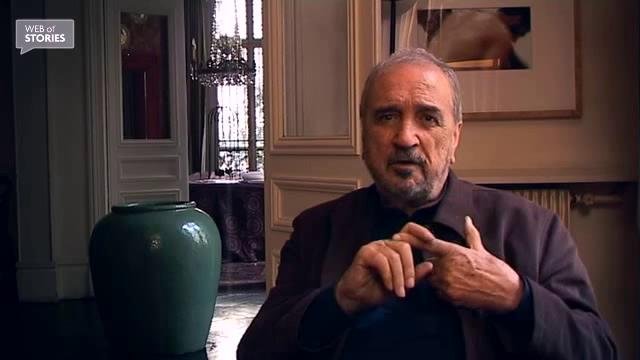Now we know how very difficult it is becoming as each country writes history its own way. There is an official 'history' in Polish books, in French ones, Russian ones, Chinese ones. In modern Chinese books you are taught that Tibet has always been a part of China, which is completely untrue. I learned in French history books that French colonisation only brought good things to Africa. In modern Russian books you learn that Stalin is a great man in the history of Russia. And so on. Therefore you simply can't teach all of the history of the different countries by putting those books together. And now with the internet... even within a country, different parties, different ideologies, all can tell 'history' each in their own way, we are... we are standing in front of a mess, in front of open pages of information that you can't link together to know exactly... it is very difficult... I wonder if historical research is on the way out. That's a worry I have. It was already the case a long time ago, when I undertook my studies, for instance when you reach a certain level, when you reach Normales Superieures, you are taught in a different way, they start telling you about French colonisation in a different way. And for... I remember... for the First World War, they gave us a French history book and a German history book side-by-side. And you can see that in both books, the same battle is called Victory of the Battle of the Marne, both sides consider it a victory. Officially, in school books, that is what is taught to children. So this is when you start doubting everything, what really happened, and how the battle ended. And so on, for the rest of his life, the historian will question. I wonder if there is anyone who questions more than historians do? Probably not. We can talk about this again later if you want, when we talk about Danton - that was fascinating too, reviewing the French Revolution through a Polish eye.
Et on sait à quel point aujourd’hui c’est de plus en plus difficile car chaque pays écrit l’histoire à sa façon. Il y a une histoire officielle dans les livres scolaires polonais, français, russes, chinois. Dans les livres scolaires chinois aujourd’hui on apprend que le Tibet a toujours fait partie de la Chine ce qui est complètement faux. Moi, dans les livres d’histoire français j’appris que la colonisation française avait apporté à l’Afrique que des bienfaits. Dans les livres scolaires russes aujourd’hui on apprend que Staline est le grand homme de la Russie, de l’histoire russe, de toute l’histoire de la Russie. Et ainsi de suite… Donc si on essaye de mettre ensemble ces livres-là, l’enseignement prodigué dans différents pays pour en faire une histoire, on n’y arrive pas. Et comme maintenant Internet s’en mêle, comme sur Internet à l’ intérieur même d’un pays, différents partis, différentes tendances, peuvent raconter l’histoire chacune à sa manière, on est…. on se trouve devant un fouillis comme ça, une plage de sable d’information qui est impossible de mettre pour en former un ciment [?]… c’est très difficile. Je me demande si la discipline historique ne va pas bientôt disparaître. C’est une inquiétude que j’ai. C’était déjà le cas il y a assez longtemps, mais quand j’ai fait mes études par exemple, à un certain niveau, quand on arrive à l’Ecole Normale Supérieure, on vous apprend différemment, on commence à vous parler de la colonisation française d’une autre façon. Et en ce qui concerne, je me rappelle, la guerre 14-18, on nous mettait côte à côte un manuel d’histoire français et une manuel d’histoire allemand pour raconter la même guerre. Et on voit que dans les deux manuels, la même bataille s’appelle «la victoire de la marne», c’est une victoire de deux côtés. Officiellement, dans les livres scolaires, ce qu’on apprend aux enfants. Alors là ça commence à vous faire douter déjà, sur ce qui s’est passé vraiment et quels ont été les résultats de cette bataille. Et ainsi de suite, tout le reste de la vie d’un historien n’est qu’une série de questions. Je me demande s’il y a des gens que s’interrogent plus que les historiens. Peut-être pas. On pourrait parler plus tard, si vous voulez, à l’occasion de Danton, ça a été très passionnant, à travers une œuvre polonaise de retrouver l’histoire de la révolution française sous un tout autre jour.






